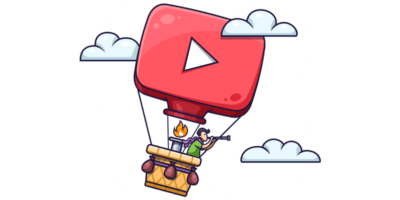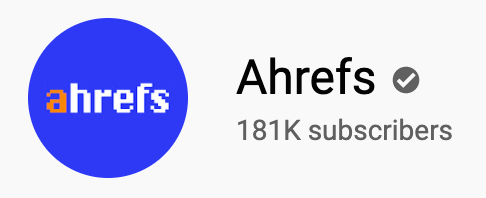
We did this by following a list of proven strategies that helped us get more subscribers to our YouTube channel.
In this post, I’ll share those strategies with you.
- Target topics that people are searching for
- Keep your channel’s theme tight
- Give people what they’re looking for
- Double down on formats that work
- Publish on a consistent schedule
- Add your videos to a playlist
- Link to your YouTube channel from external sources
- Use YouTube’s interactive features
- Ask your viewers to subscribe
If no one is watching your videos in the first place, then no one will subscribe. Views are a prerequisite to getting subscribers.
How can you get more views on your YouTube videos?
Create videos about the topics that people are searching for and rank in YouTube search.
How do you find these topics?
Use our free YouTube Keyword tool. Just enter any topic, and it’ll show you up to 150 keywords and their estimated monthly search volumes.
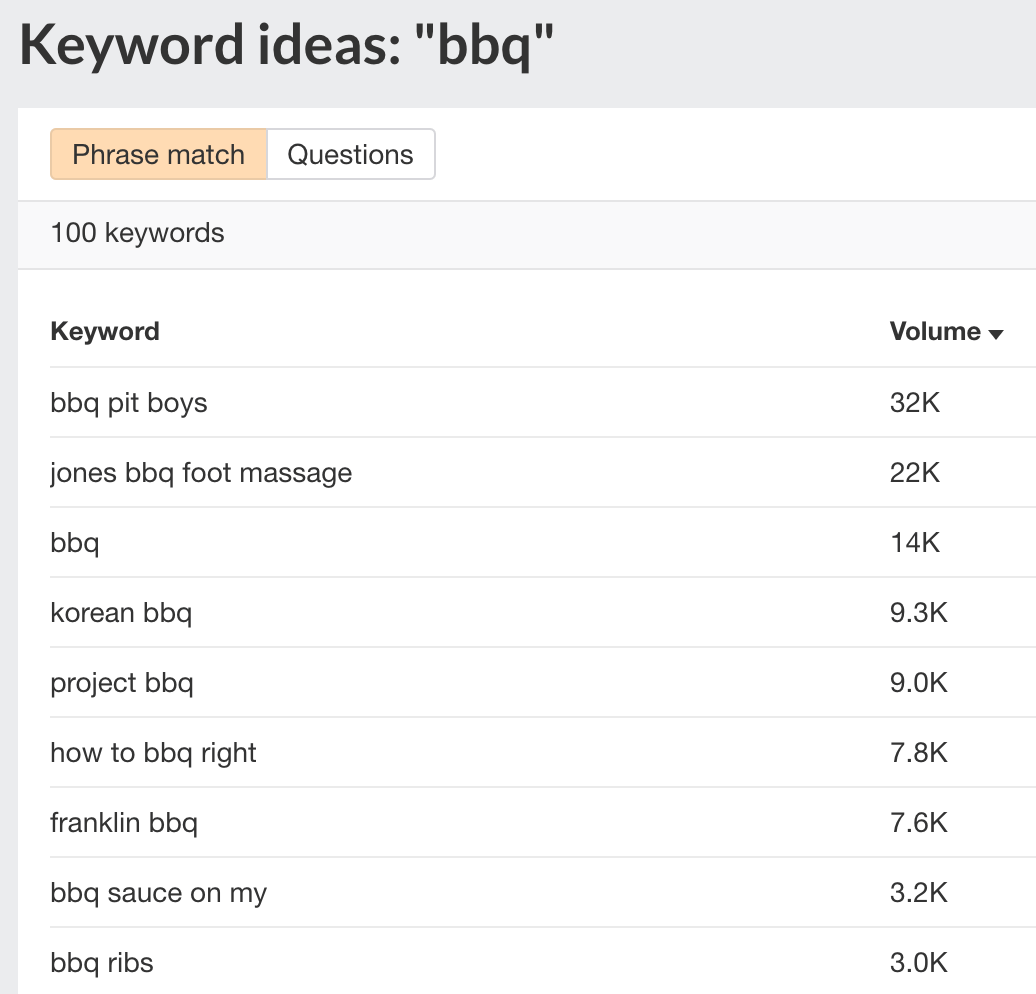
Looking for a larger pool of ideas?
Use Ahrefs’ Keywords Explorer to pull all ideas from our database of over 800 million YouTube keywords.
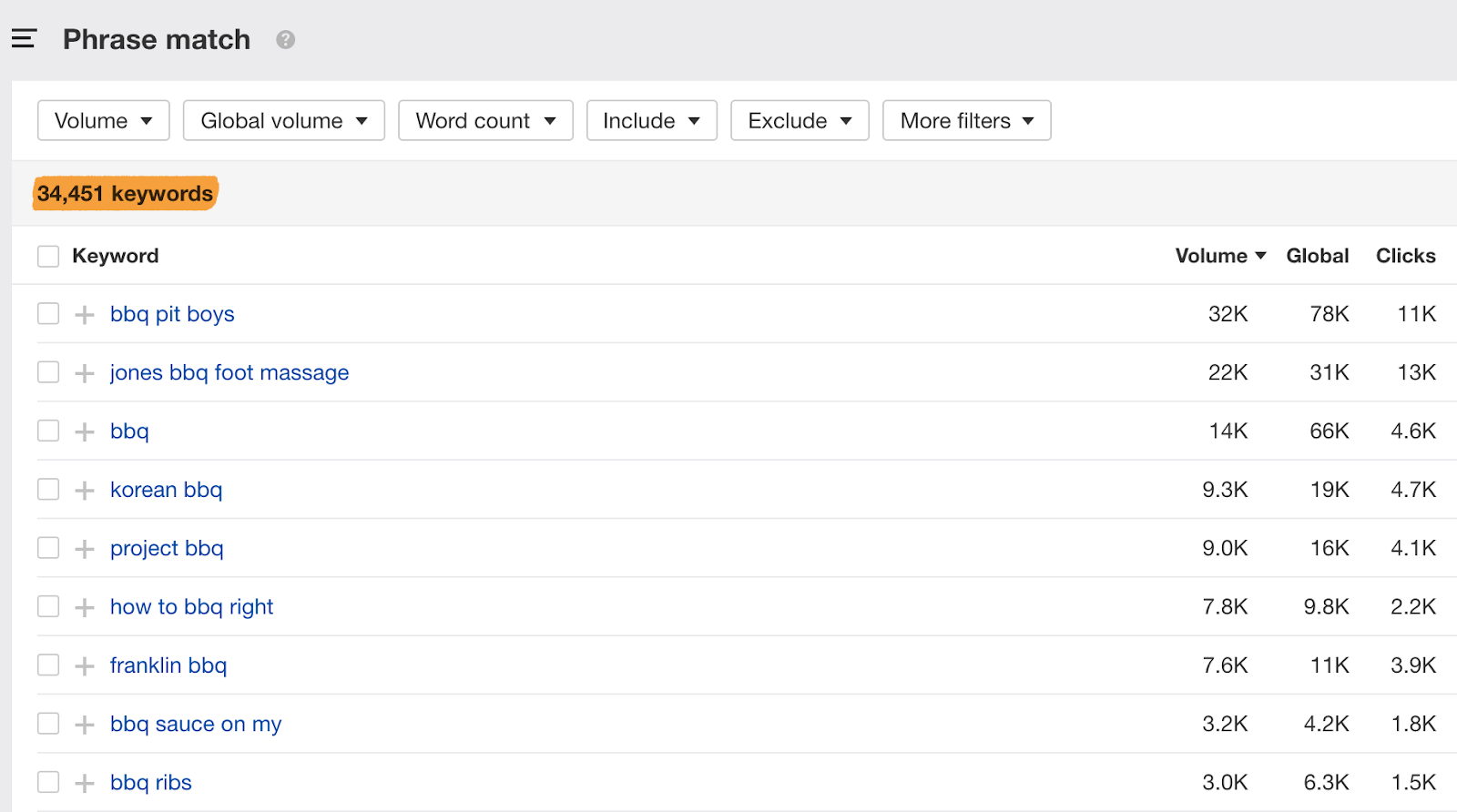
Once that’s done, you need to create an optimized video that’ll rank in YouTube search results. Follow this tutorial to learn how to create it, or watch this video:
If we assume that a percentage of all viewers end up subscribing to your channel, then it stands to reason that more views equal more subscribers.
Just because people are searching for something doesn’t necessarily mean that you should make a video about it.
For example, 3,000 people are searching for “hainanese chicken rice” monthly in the U.S:
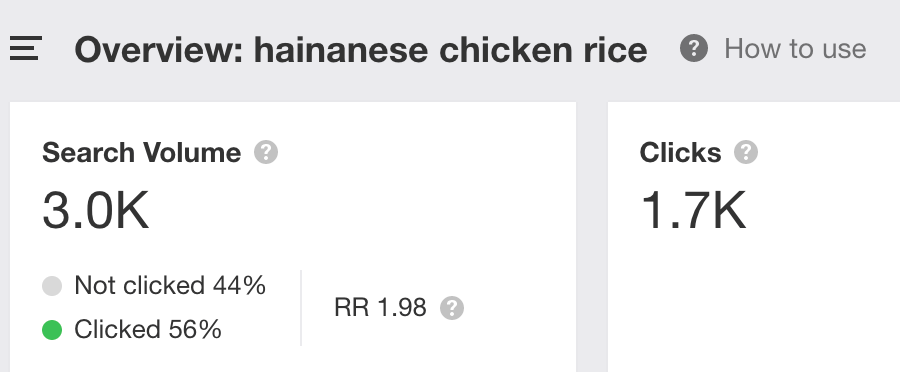
Data from Ahrefs’ Keywords Explorer
Although we could publish a video about this topic, rank in search, and attract tons of viewers and subscribers, it wouldn’t be a smart move because it has nothing to do with SEO, the topic our subscribers care about.
That isn’t good for two reasons:
- They’ll unsubscribe. If this happens, what’s the point in getting subscribers in the first place?
- They’ll mess with our video’s engagement. Dislikes, negative comments, short watch times—expect all this and more if your subscribers don’t like your video.
If you’re wondering why that second point has anything to do with subscribers, your video’s engagement (or lack thereof) can affect its rankings in YouTube search. It can also impact whether it appears in the sidebar as a suggested video.
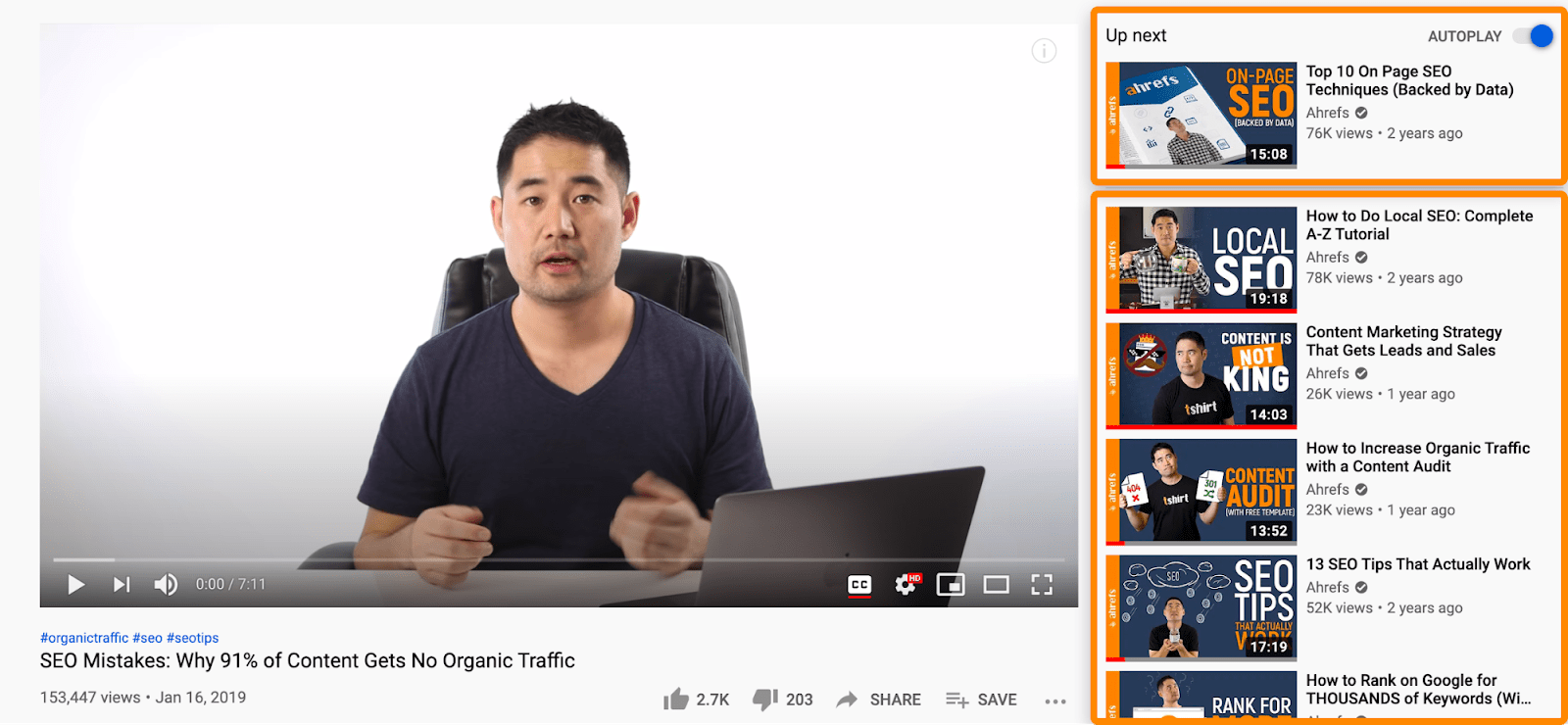
These two traffic sources tend to send the most consistent views, which results in a constant stream of subscribers.
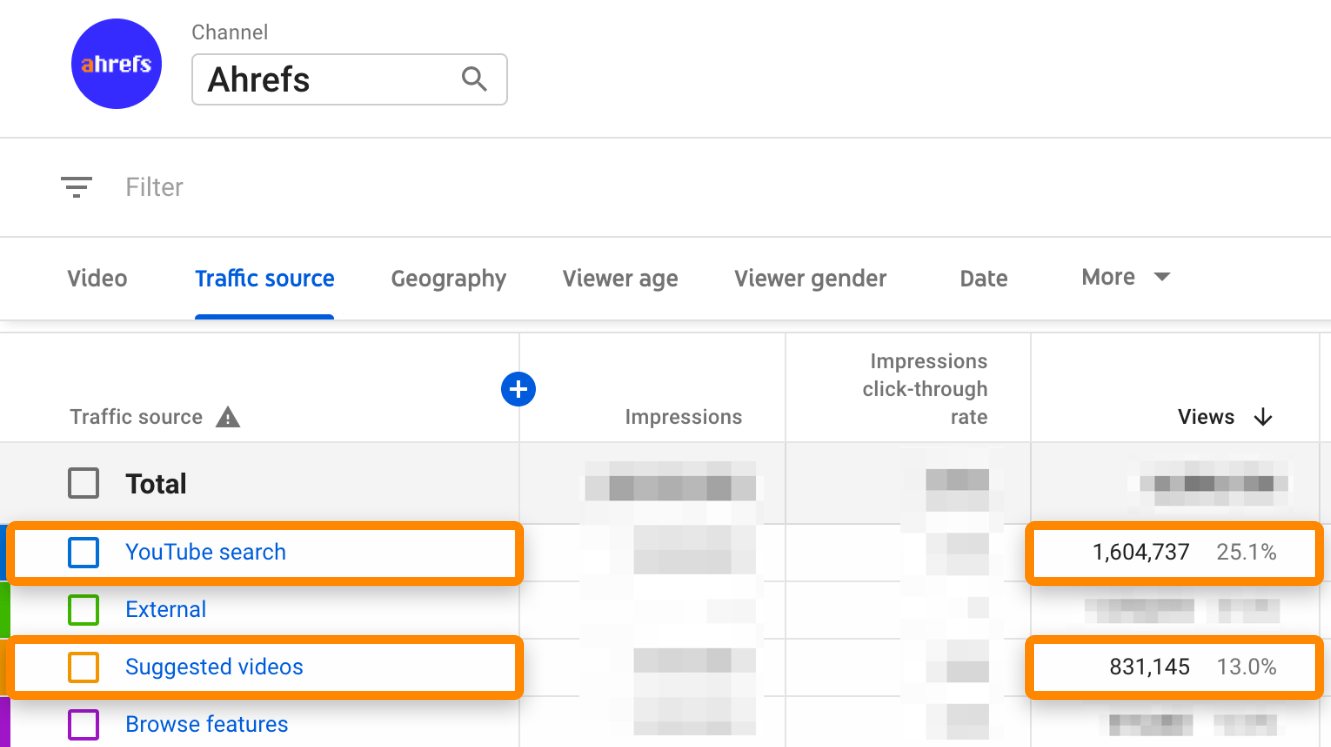
For that reason, you should keep your channel’s theme as tight as possible—especially in the early days of your channel.
That’s what we did. We started by focusing solely on topics related to SEO.
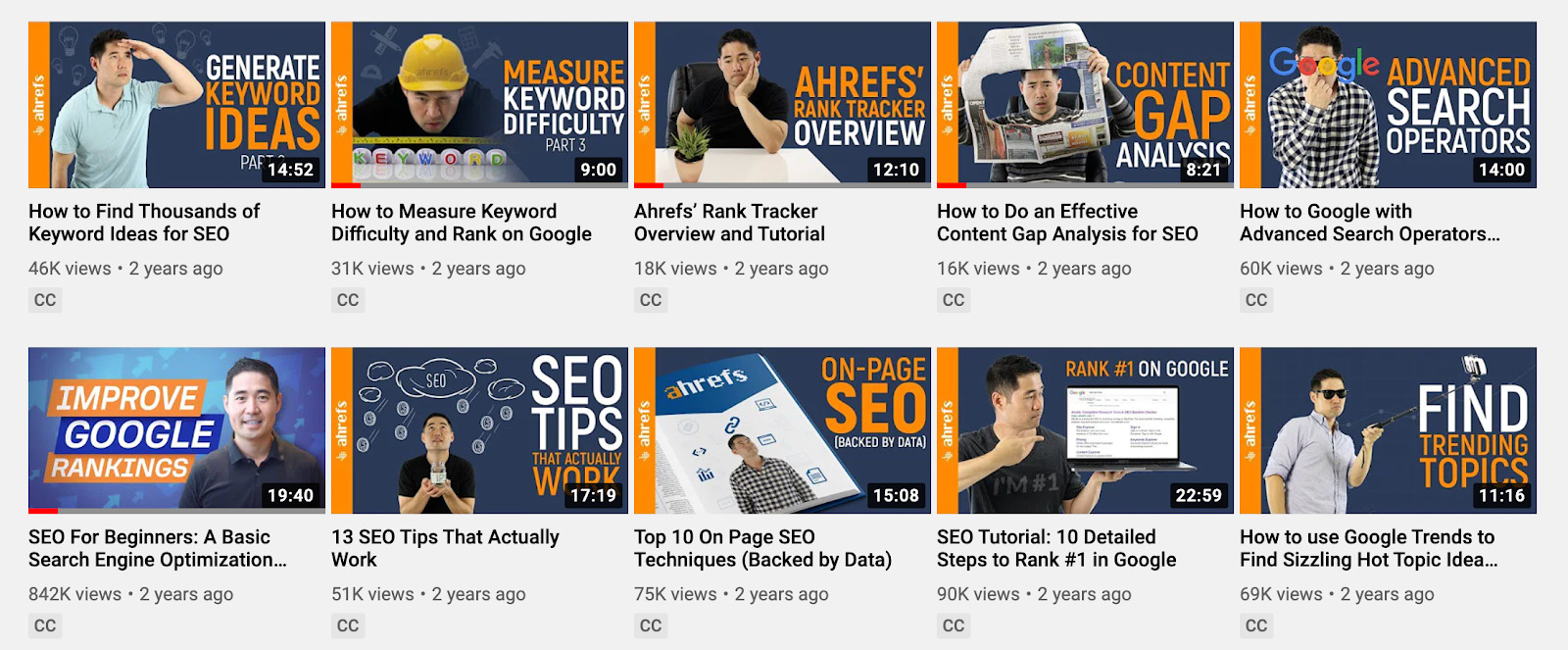
This made it easier to earn our subscribers’ engagement, have YouTube promote our videos to new but similar audiences, and get more subscribers.
If your video’s title is “Tesla Model 3 vs. Tesla Model Y”, but the first three minutes of your video are about BMWs, then your viewers are going to bounce and won’t subscribe.
A good YouTube video is one that serves the viewer’s wants and needs.
How do you know what your viewers want?
For some topics, it’s pretty straightforward. A topic like “how to make scrambled eggs” means viewers want a tutorial on making scrambled eggs.
YouTube agrees, as all the top results are precisely this:
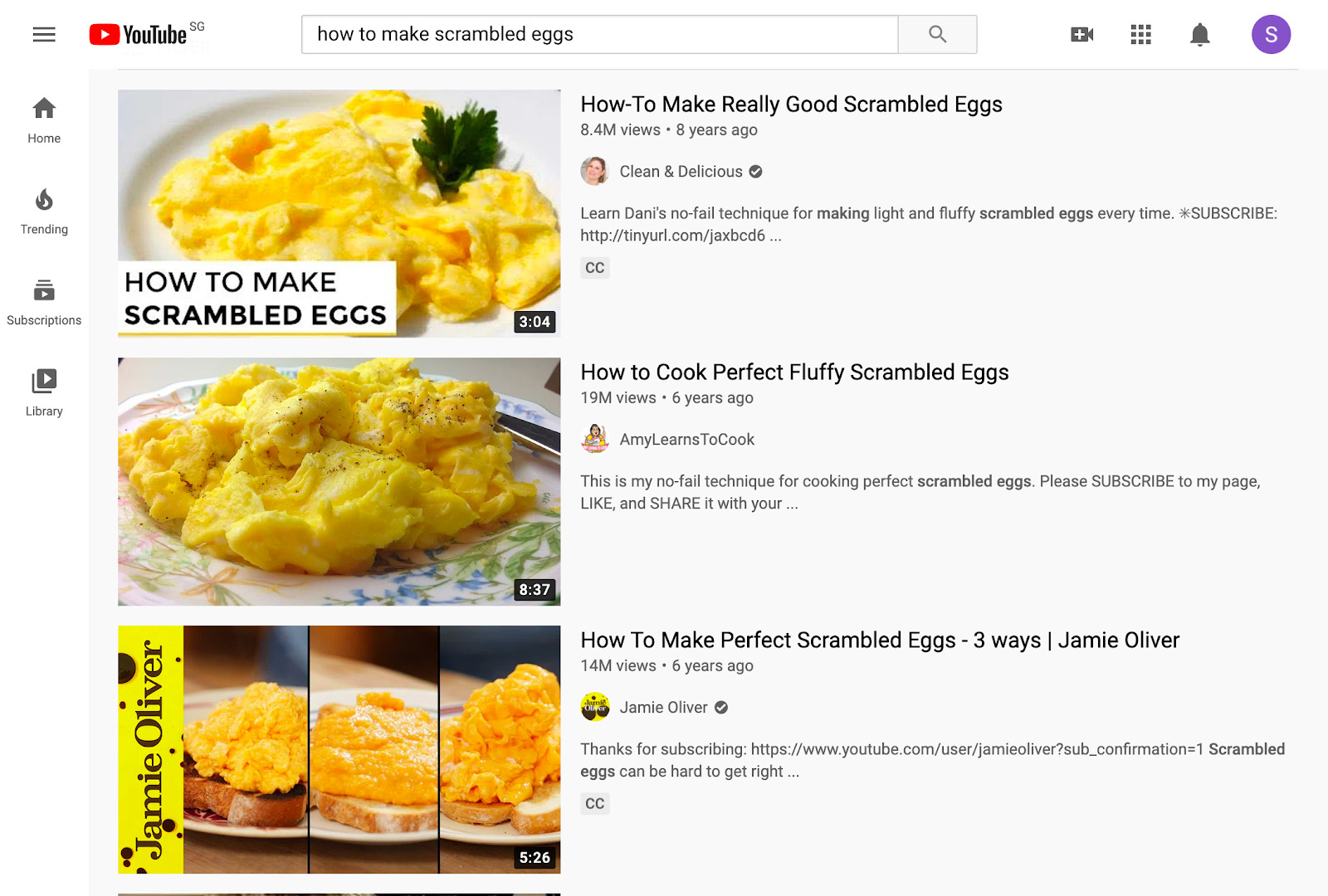
For other topics, it’s not that straightforward. Take the topic, “nintendo switch games” as an example. Do people want to see reviews? A list? Gameplays?
To figure that out, enter that topic into YouTube and see what’s ranking. In this case, they’re mostly roundups of the best games of all time:
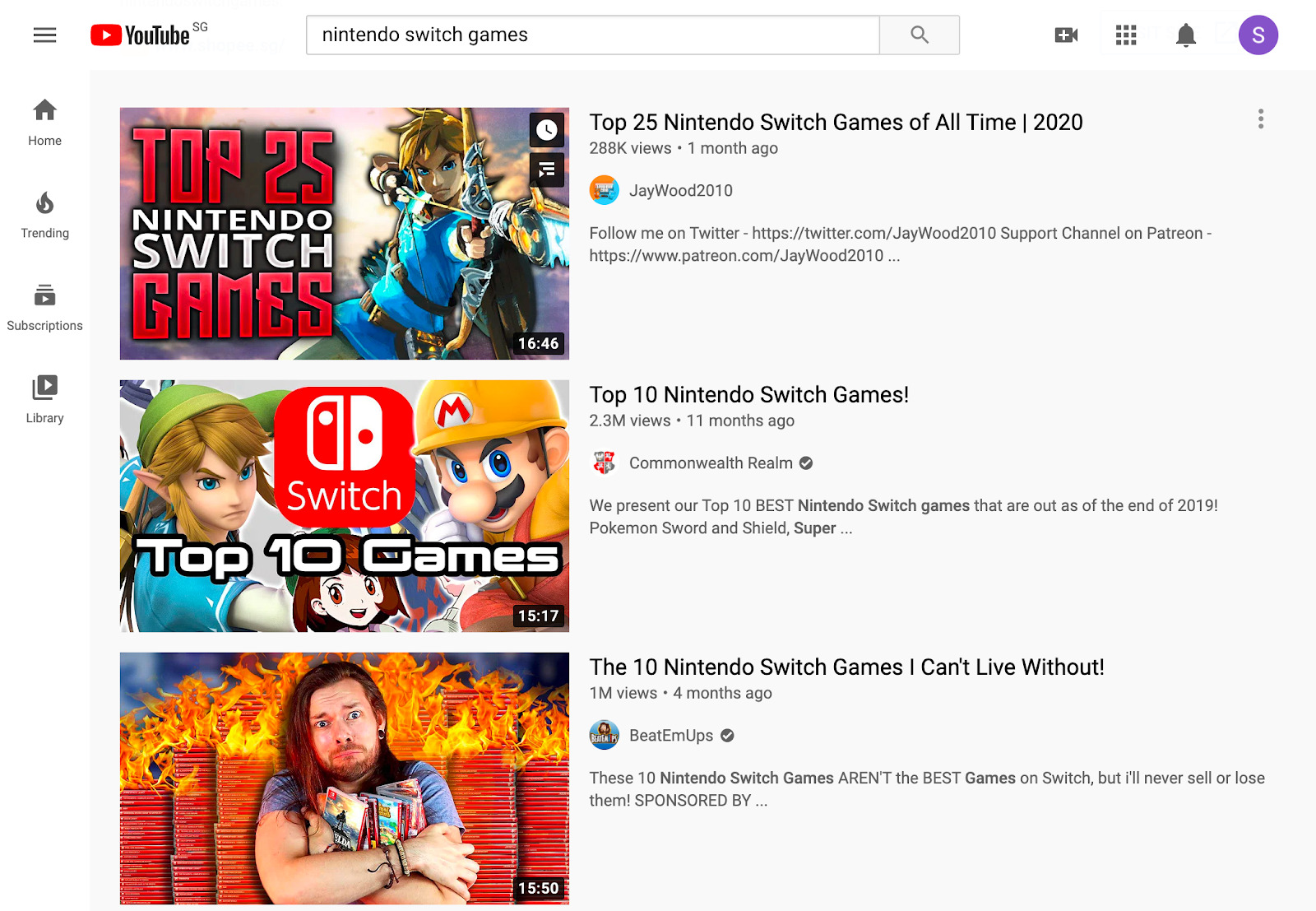
If YouTube is overwhelmingly ranking a specific video format, as is the case above, then you’ll almost certainly need to create something similar to stand a chance at ranking.
It might seem that growing our subscriber base was all sunshine and roses, but it wasn’t. We still made mistakes along the way.
For example, in 2018, Sam Oh, our YouTube guy, got the opportunity to travel to Ahrefs’ headquarters in Singapore. At the time, we had around 30,000 YouTube subscribers.
We thought our audience might enjoy a vlog of Sam’s experience visiting Singapore.
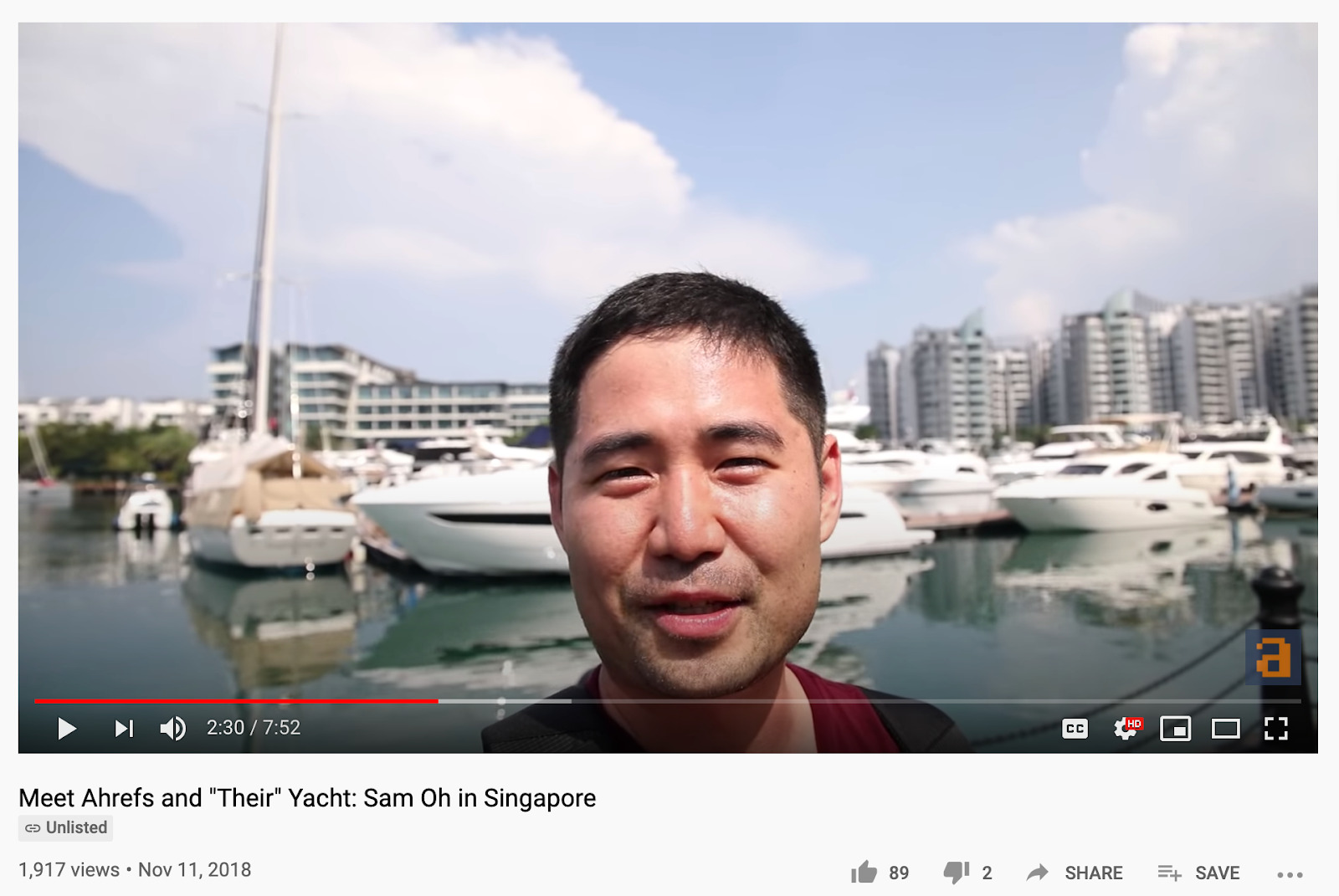
We were completely wrong.
Sam’s Singapore vlog was the only video on our entire channel that resulted in net-zero subscribers.
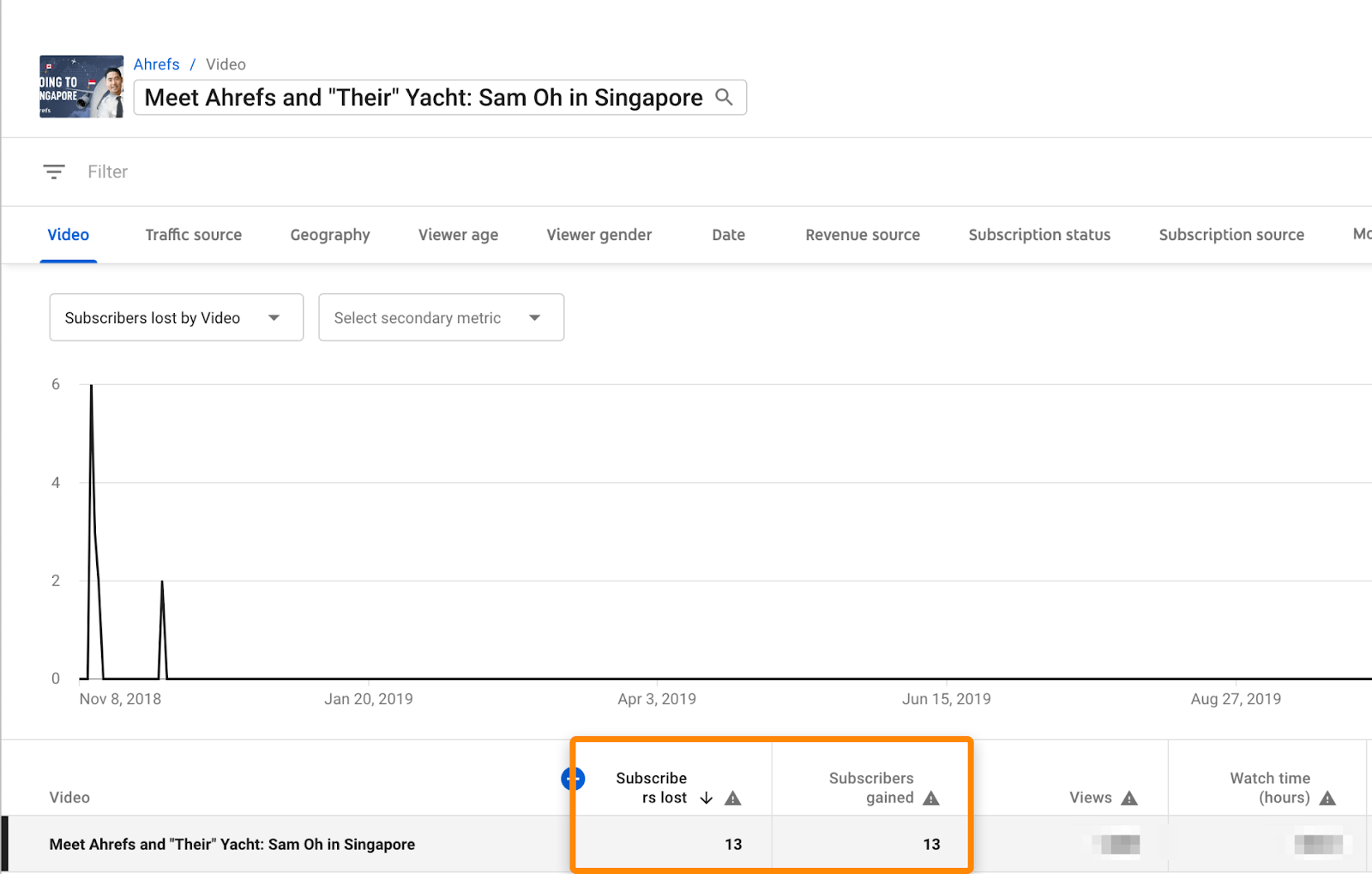
So we unlisted it.
The reality is that our subscribers only care about SEO and digital marketing tutorials that help them get results for their websites, YouTube channels, and businesses. And you’ll see that’s all we publish now.
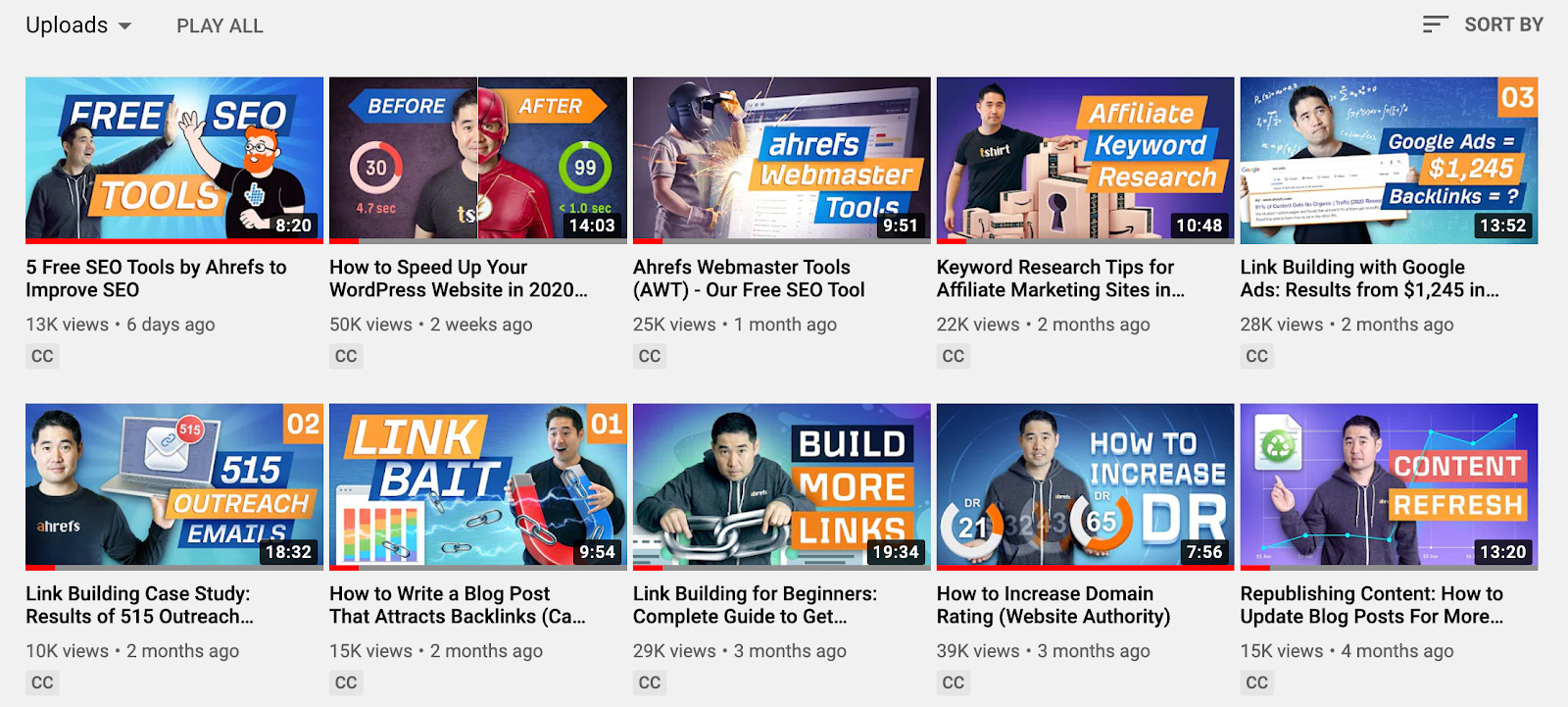
While this doesn’t mean you shouldn’t experiment with new formats, it’s a reminder that once you’ve found one that works, stick with it.
Only when we started publishing one video per week in 2018 did our subscribers truly begin to grow.
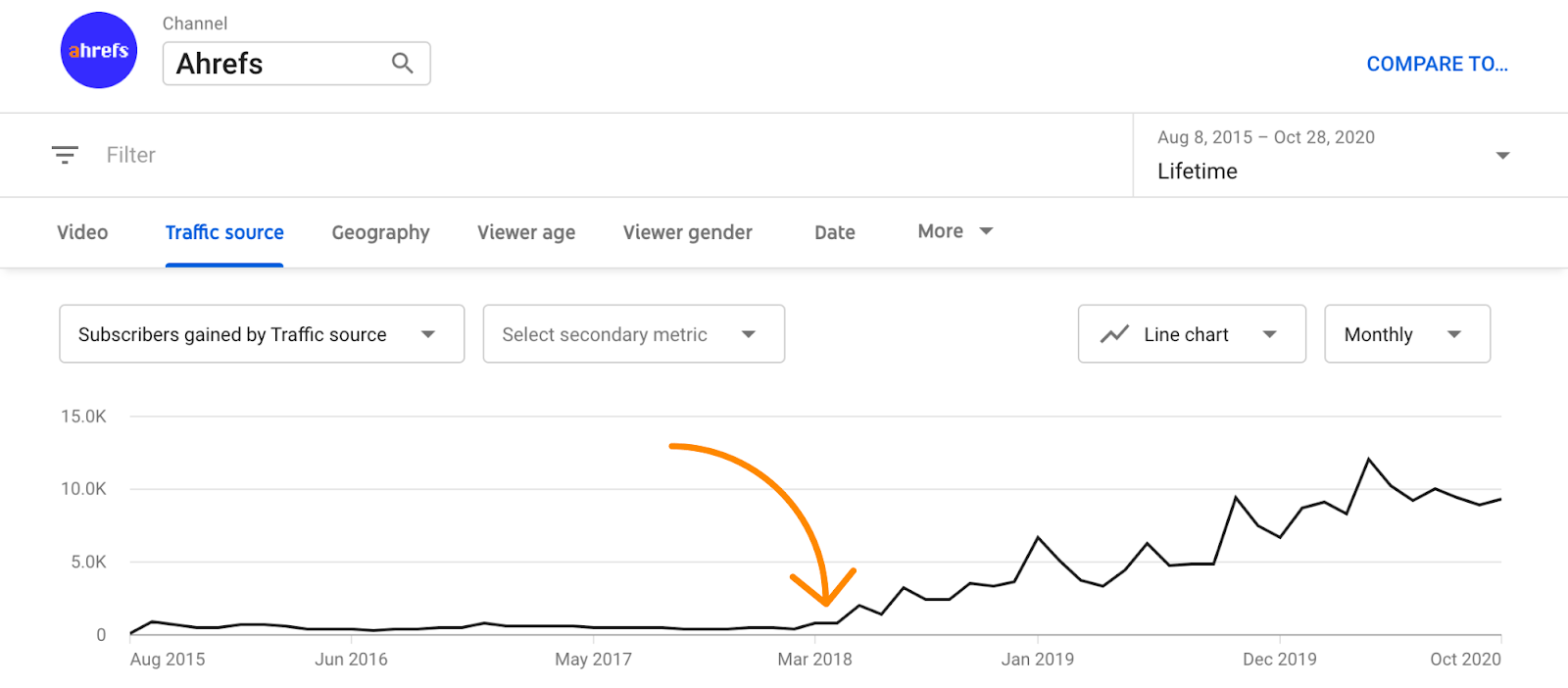
Committing to a weekly publishing schedule meant we were able to produce more content. More content meant more views. More views meant more people likely to subscribe to our channel, and as a result, our subscriber count went up.
So, if you want to get more subscribers on YouTube, find a publishing schedule you’re comfortable with and stick to it.
Doing this will prevent you from making the common beginner mistake of publishing once and disappearing for a few months.
The good thing is: it doesn’t have to be a weekly video either. All that matters is that you’re able to stick to your schedule consistently.
On YouTube, you can add your videos to multiple playlists:
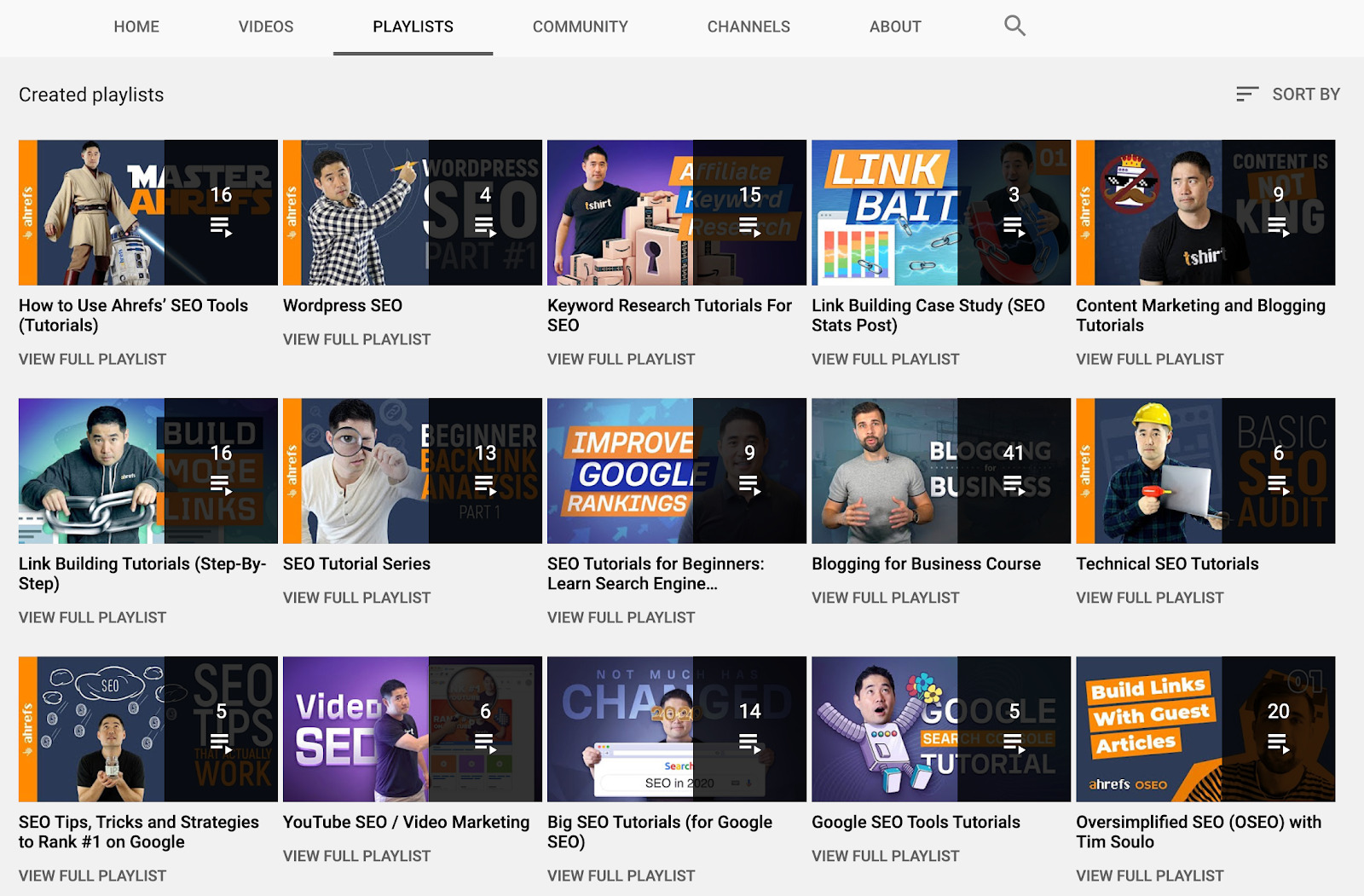
While playlists won’t earn subscriptions directly, they increase the likelihood of someone watching more than one video. And the more exposure they have to your content, the more likely they are to hit the subscribe button.
Playlists are a win in every way. They improve user experience, user engagement, and lead to more subscribers.
When we look at our channel analytics, it’s clear that our channel homepage is our second biggest driver of subscribers.

In other words, the more people we can drive there, the more subscribers we’ll likely get.
That’s one of the reasons we link to our YouTube channel homepage from our other marketing channels. For instance, our site homepage:
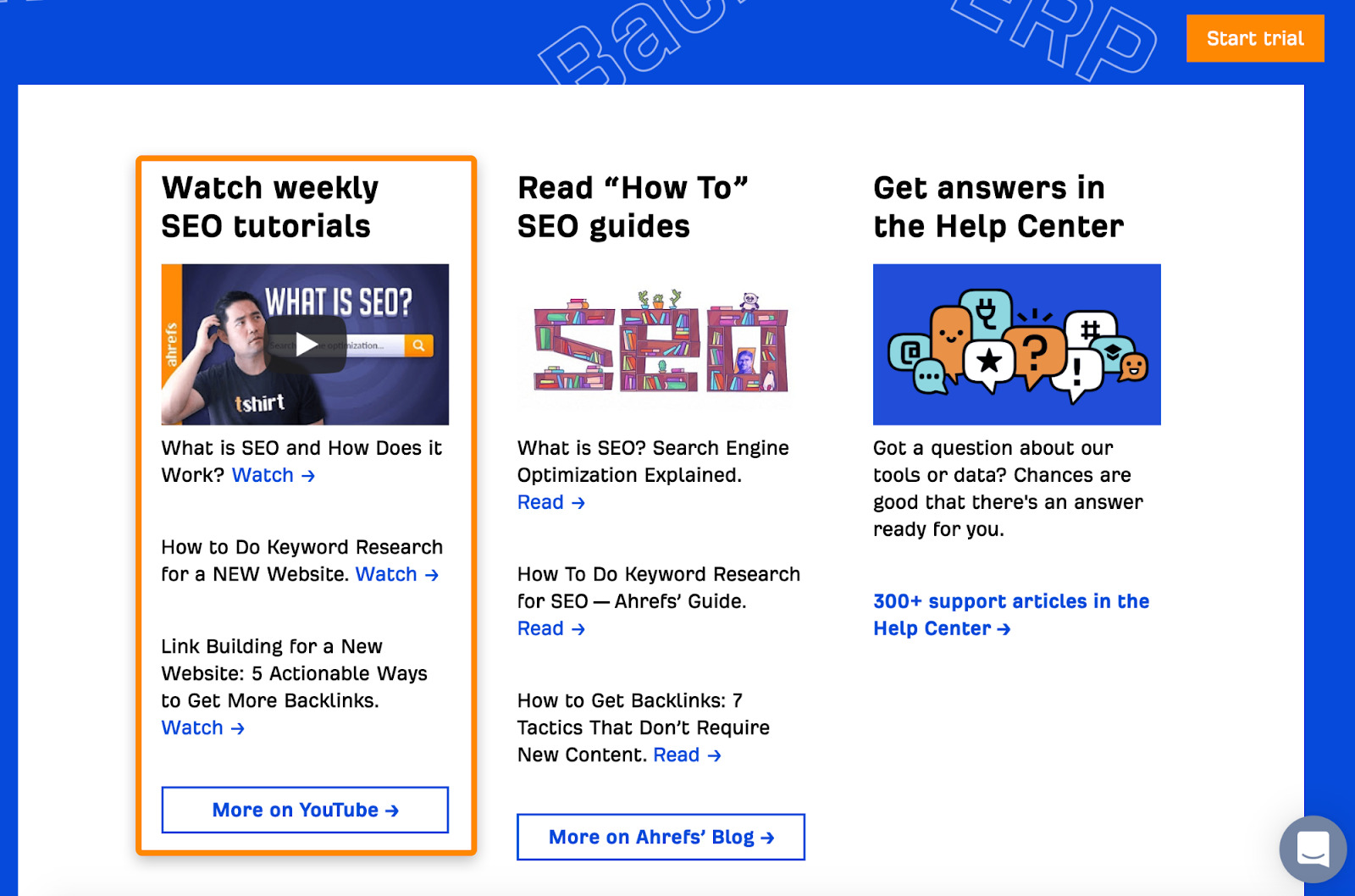
And many of our blog posts:
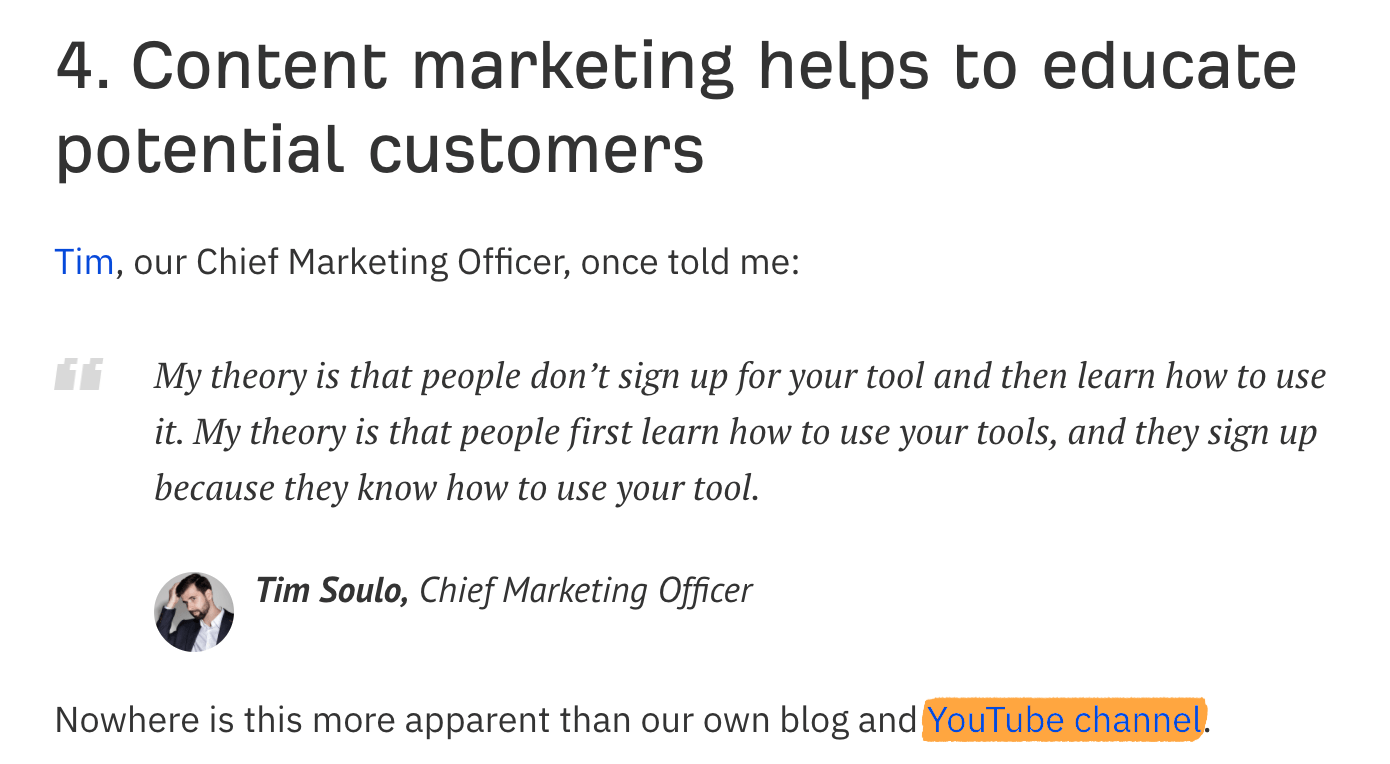
But we don’t just limit it to the assets we can control. For example, when someone from the marketing team is interviewed on a podcast (or gives a talk), and the host asks where their audience can learn more about us, we often tell them to search for Ahrefs on YouTube.
And naturally, podcast hosts will link to our channel from the episode we did together.
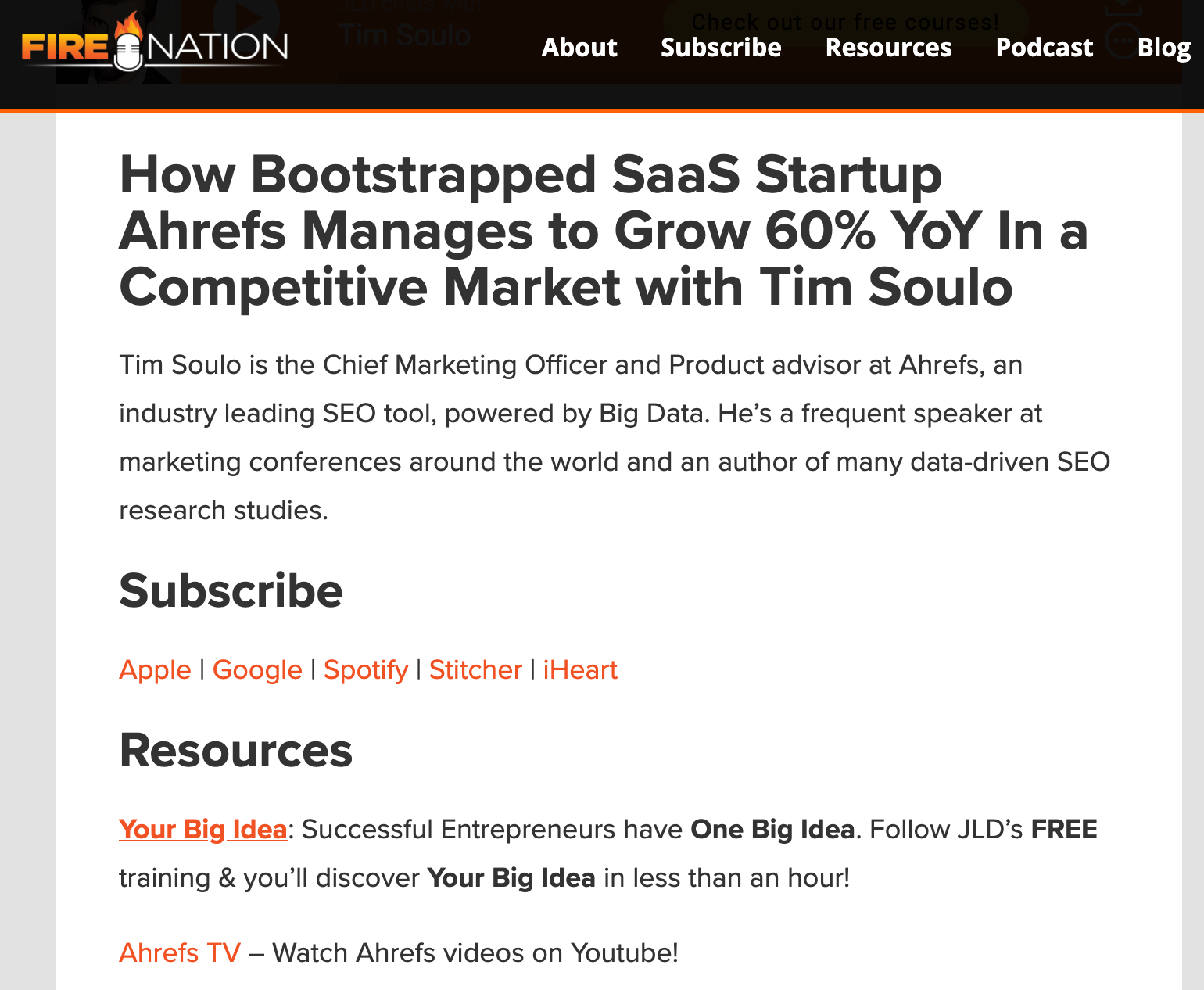
An interview with our Chief Marketing Officer, Tim Soulo, on the Entrepreneur on Fire podcast
YouTube offers a few interactive features that you can add to your video to encourage people to subscribe. For example, you can add watermarks:
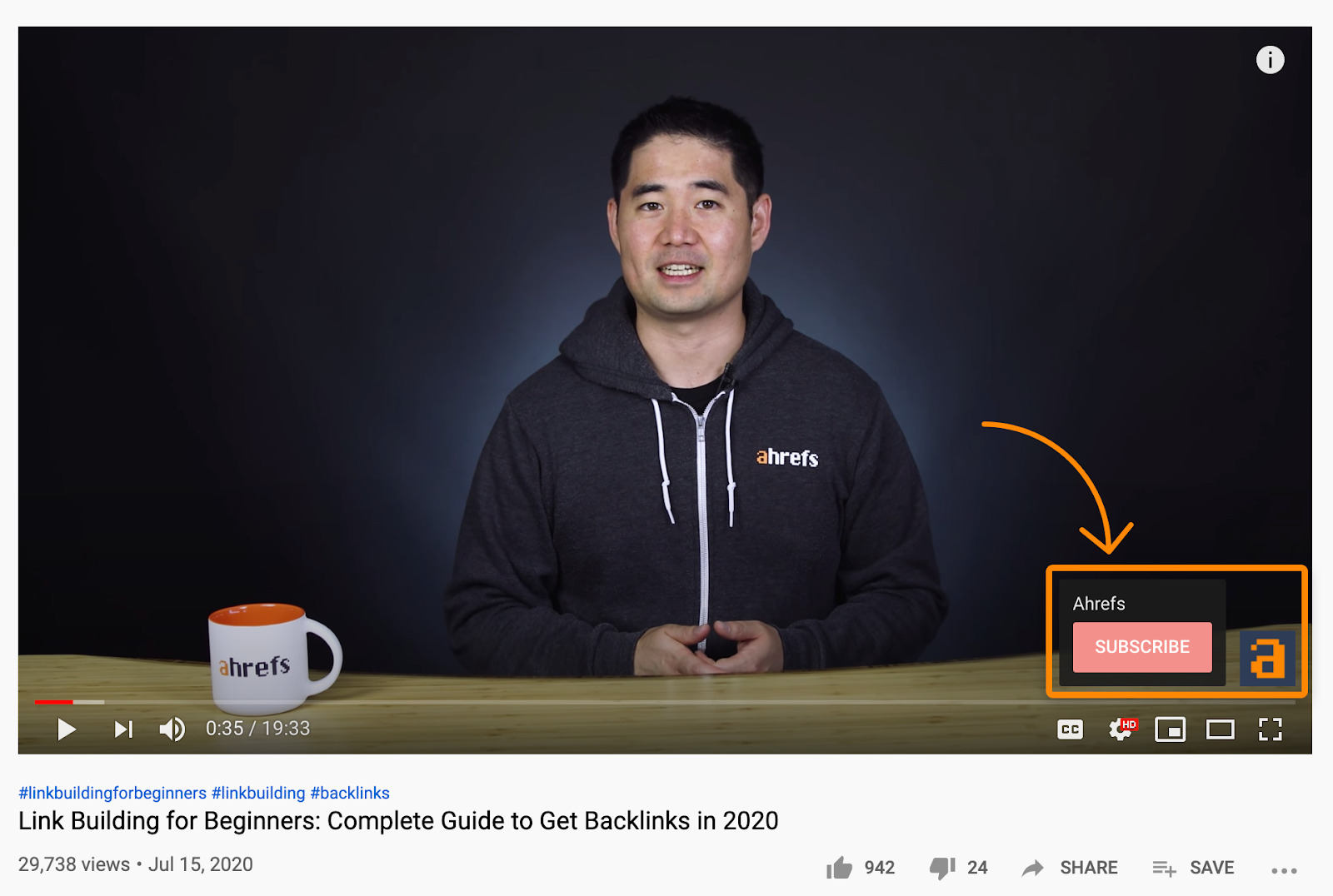
When a viewer clicks the watermark in any of your videos, it brings up the subscribe button. You can also add end screen subscription buttons:
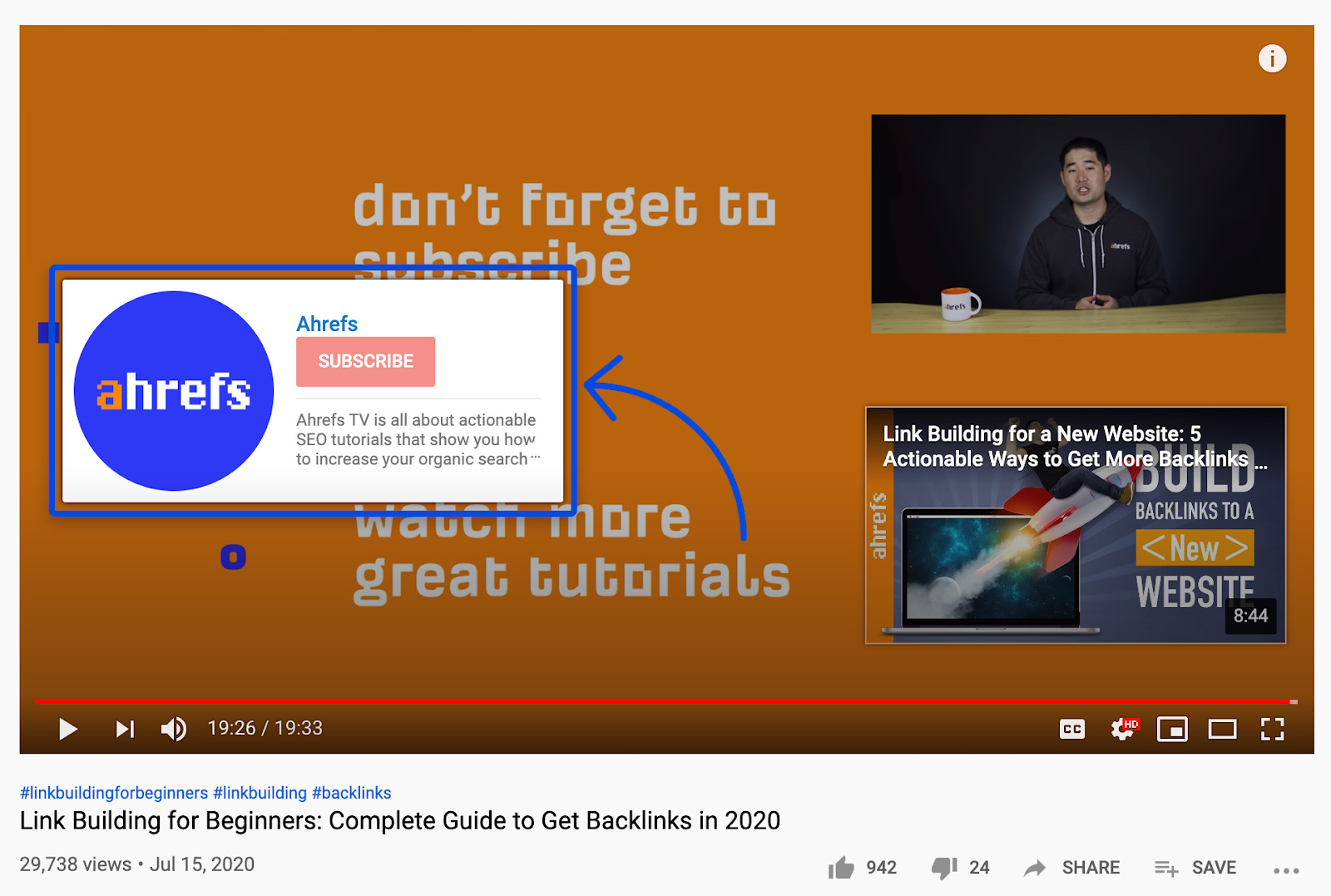
Now, these features have only been responsible for around 1.5% of our subscribers in 2020, so don’t raise your expectations and magically expect them to skyrocket your subscription rate.

But since they take only a few minutes to add and still contribute to your overall subscriber base, it’s still worth adding them to your videos.
Not all your viewers are subscribers, so don’t forget to ask them to subscribe.
The general format we use is pretty simple—we add the “ask” and tell them why. So, for our regular videos, we’ll just say, “make sure to subscribe for more actionable SEO and marketing tutorials.”
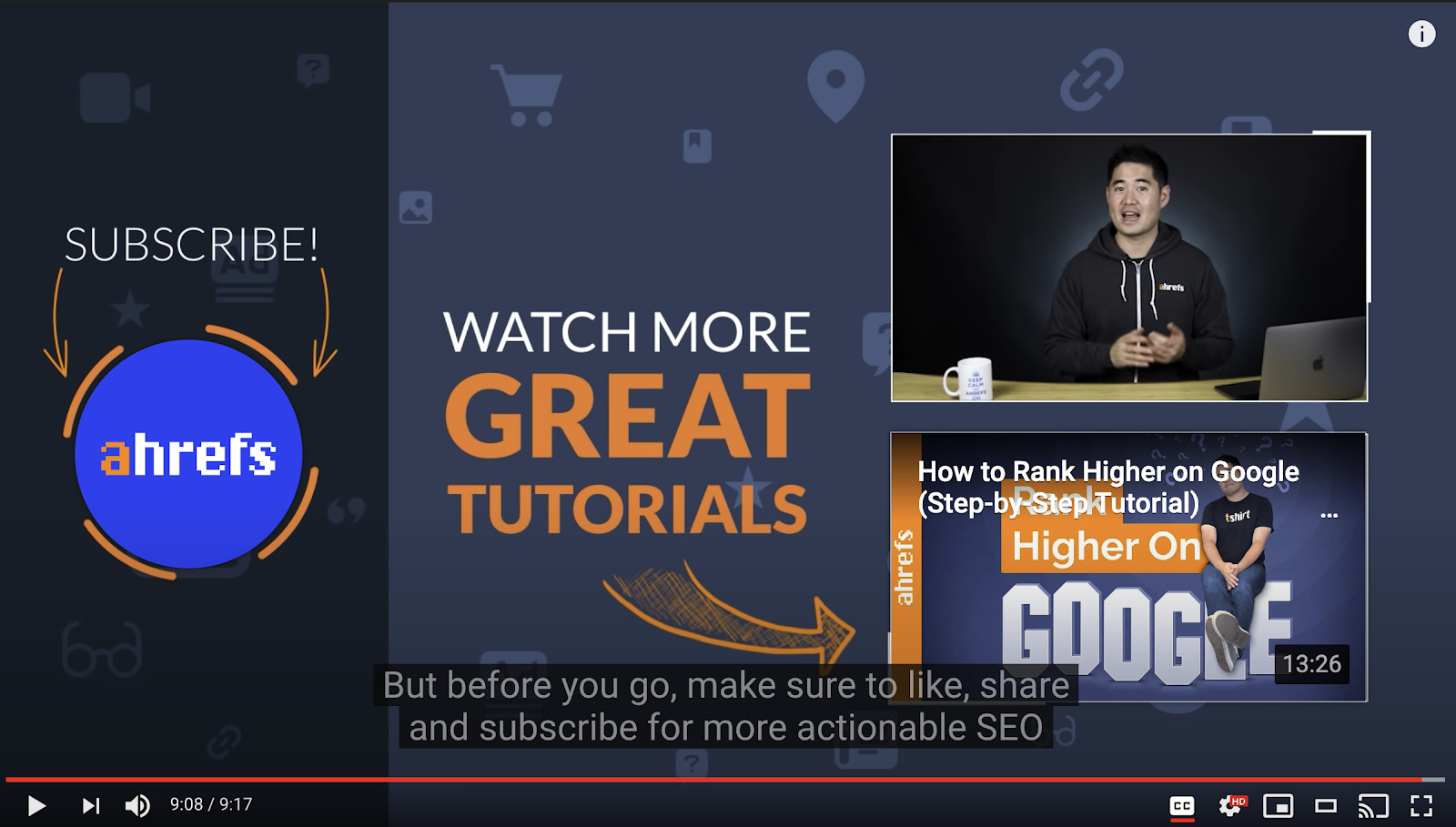
And if we’re doing a series of videos, then our “ask” would be “make sure to subscribe so you don’t miss the next video in the series.”
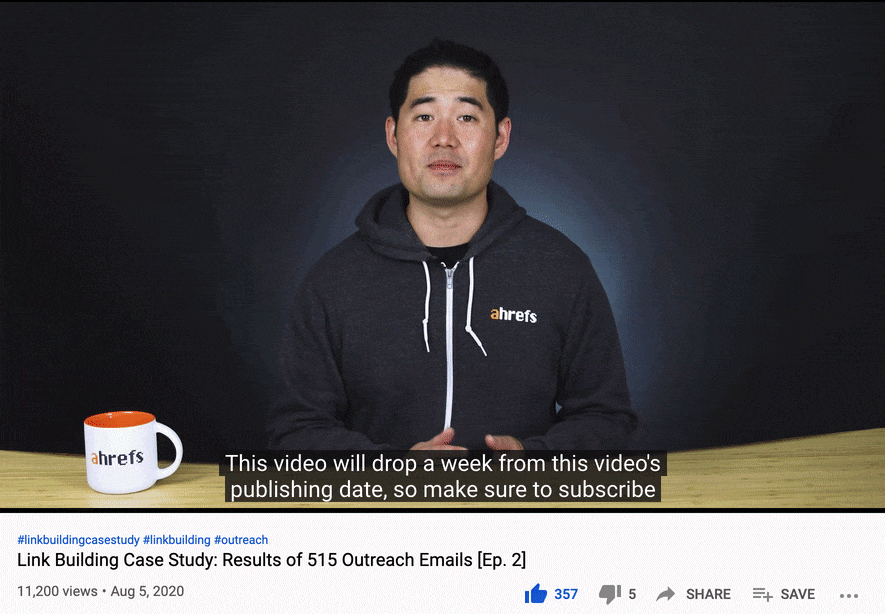
Just be careful not to overdo this. Many YouTube creators spam the “ask” in multiple parts of the video: the beginning, a few times in the middle, and the end.
Not only is this unhelpful, but it is also annoying, which may turn viewers off from subscribing. That’s why we keep the ask to a minimum by adding it to the end of our videos.
Final thoughts
We’ve used these tactics with great success on our YouTube channel, and there’s no reason they shouldn’t work for you.
Need more tactics on how to get more views on YouTube? Read this post.
Want to learn how to rank your videos in Google search? Check this post out.
Did I miss out on any cool tactics to get more subscribers on YouTube? Let me know on Twitter.


